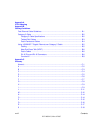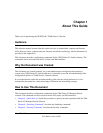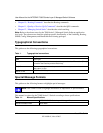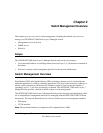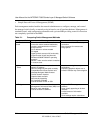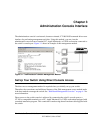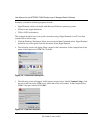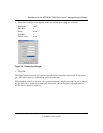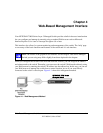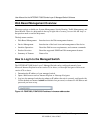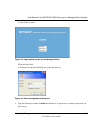
User Manual for the NETGEAR 7300S Series Layer 3 Managed Switch Software
2-2 Switch Management Overview
202-10088-01, March 2005
• Simple Network Protocol Management (SNMP)
Each management method enables the network administrator to configure, manage, and control
the managed switch locally or remotely using in-band or out-of-band mechanisms. Management is
standards-based, with configuration parameters and a private MIB providing control for functions
not completely specified in the MIBs.
Table 2-1. Comparing Switch Management Methods
Management Method Advantages Disadvantages
Administration
console
• Out-of-band access via direct cable
connection means network bottlenecks,
crashes, and downtime do not slow or
prevent access
• No IP address or subnet needed
• CLI based
• HyperTerminal access to full functionality
(HyperTerminal is built into Microsoft
Windows 95/98/NT/2000/XP operating
systems)
• Secure – make sure the switch is installed
in a secure area.
• Must be near switch or use dial-up
connection
• Not convenient for remote users
• Not graphical
Web browser
or Telnet
• Can be accessed from any location via the
switch’s IP address
• Ideal for configuring the switch remotely
• Compatible with Internet Explorer and
Netscape Navigator Web browsers
• Familiar browser interface
• Graphical data available
• Most visually appealing
• CLI interfaces available
• Can be secured via SSL or SSH
• May encounter lag times on poor
connections
• Displaying graphical objects over a
browser interface may slow navigation
SNMP Agent • Communicates with switch functions at the
Management Information Base (MIB) level
• Based on open standards
• Can be secured via SNMPv3
• Requires SNMP management
software
• Least visually appealing of all three
methods
• Limited amount of information
available
• Some settings require calculations



